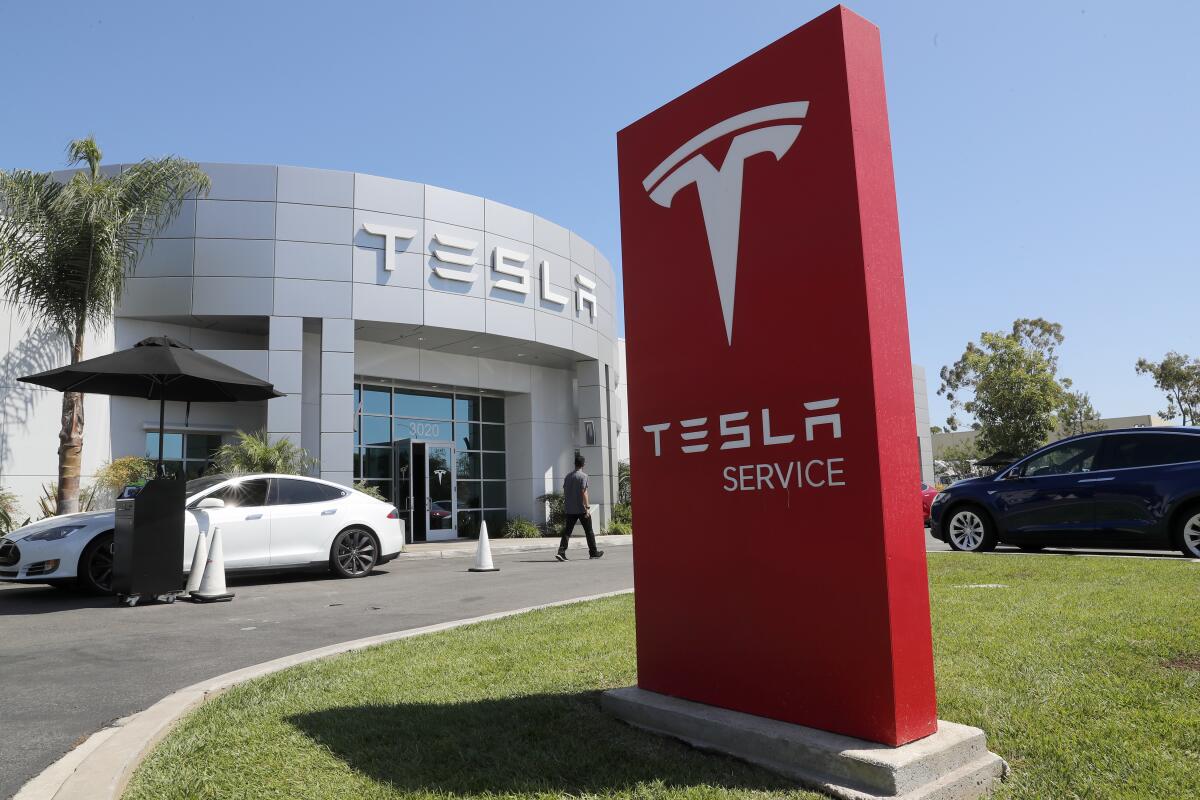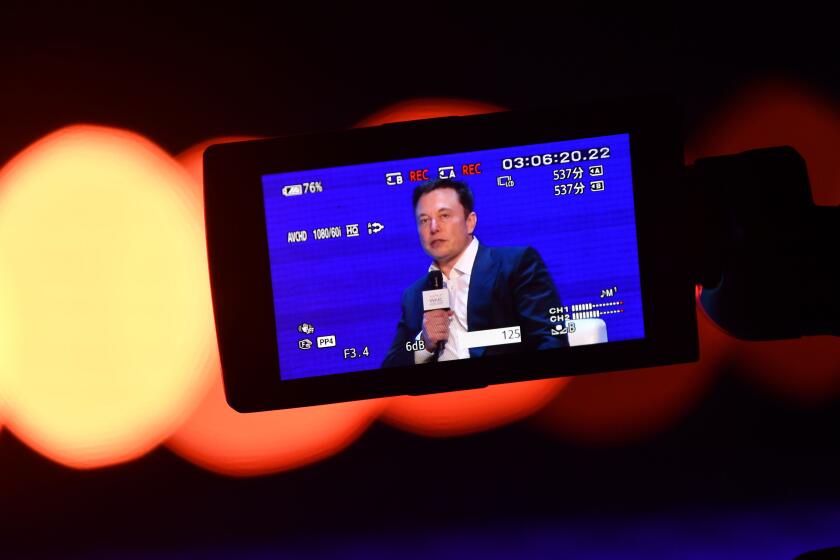How a secret Tesla team reportedly thwarted customers’ range complaints

Elon Musk is known for his unusual and disruptive business practices.
The latest apparent example was reported Thursday in an article by news agency Reuters: For years, Tesla reportedly has exaggerated the maximum range of the electric cars it sells. When customers’ range complaints overwhelmed the company’s service team, according to Reuters, Tesla created a special team to cancel those appointments and tell drivers that nothing was wrong with their cars’ battery data.
The news report, which cites customers and unnamed former employees, said that the company created a “Diversion Team” in Las Vegas specifically to cancel as many range-related appointments as possible.
The team was reportedly created to address a growing problem at Tesla: Its service center growth has not kept pace with the growth in sales for Tesla cars. “Service centers were inundated with appointments from owners who had expected better performance based on the company’s advertised estimates,” the Reuters article said. Messages sent to customers with range-related appointments said “remote diagnostics” indicated no battery problems and thus the appointment was canceled.
In a class-action lawsuit, customers say they were duped by Tesla’s $15,000 Full Self-Driving feature. Company lawyers say failure isn’t fraud.
According to Reuters, Tesla rigged its algorithms for its range meter to give drivers a “rosy” idea of how far the car could travel on a full charge; when the battery was half-depleted, the software would show a more realistic range projection, to avoid a driver being stranded with no juice left in the battery.
Customer Alexandre Ponsin told the news agency that he bought a used 2021 Tesla Model 3 with an advertised range of 353 miles, but he found that when it was cold out he got as little as half that range. (Cold weather can reduce range on any car battery.)
Given the chance to refute or explain the range issue to Reuters, both Tesla and Elon Musk failed to respond to repeated requests for comment.
Whether Tesla’s range claims violate any marketing laws is unclear. The company is under investigation by the California Department of Motor Vehicles for calling its driver assist software Full Self-Driving, when the car is incapable of driving itself without human assistance. On Wednesday, CNBC reported that the California attorney general is investigating claims the company has made about its Autopilot software.
More to Read
Inside the business of entertainment
The Wide Shot brings you news, analysis and insights on everything from streaming wars to production — and what it all means for the future.
You may occasionally receive promotional content from the Los Angeles Times.












